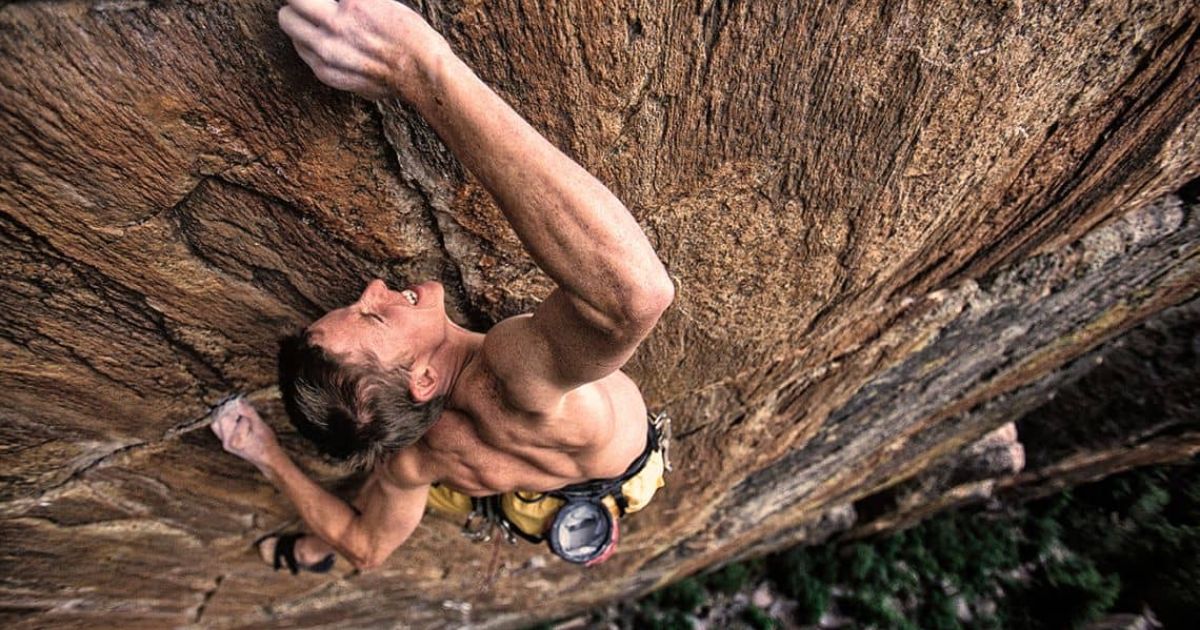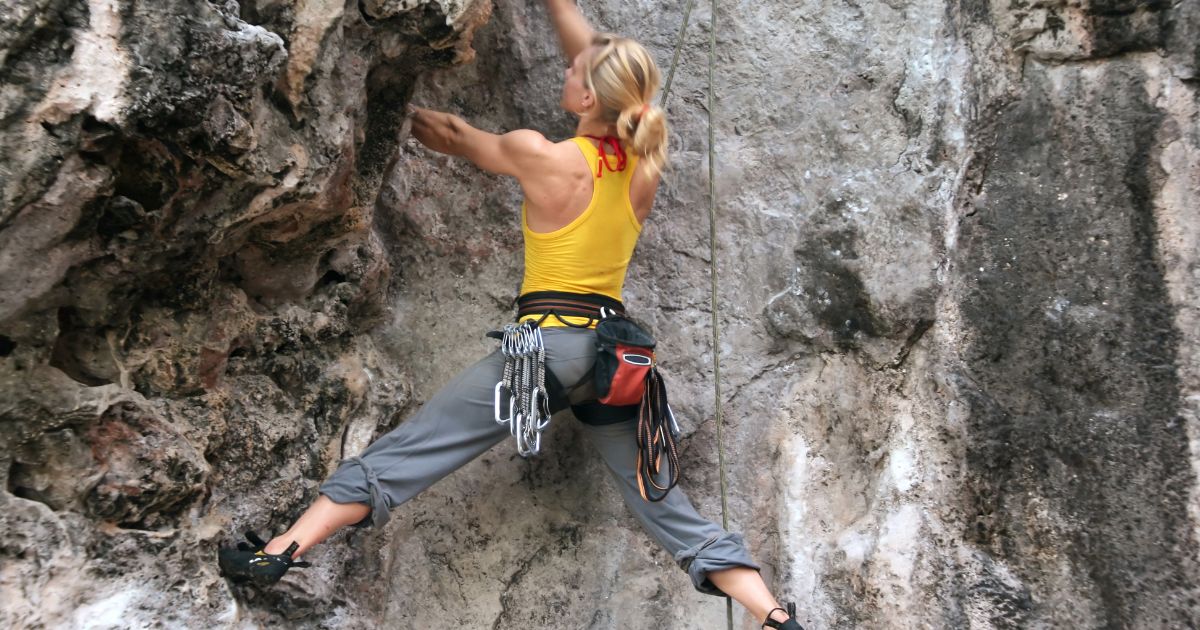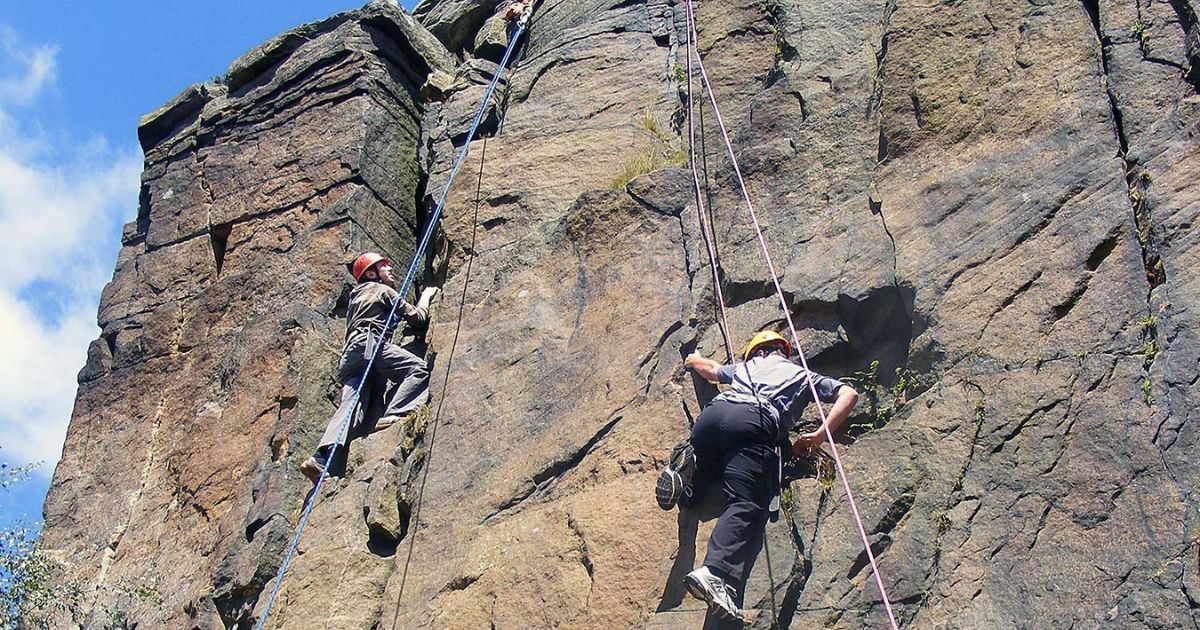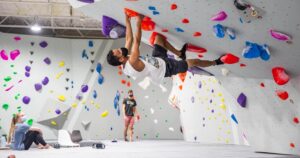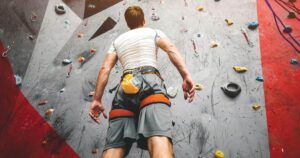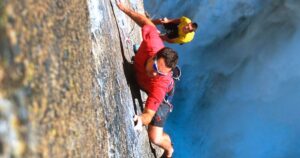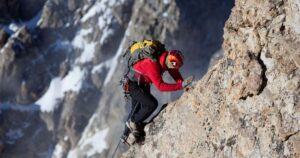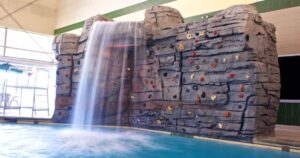Embarking on the rugged ascent of rock climbing is akin to entering an exhilarating labyrinth of both physical and mental challenges. Like a dance with gravity, it demands a harmonious blend of strength, agility, and unwavering focus. Beyond the sheer physicality, the technical skills required to navigate the intricate terrain further test the mettle of climbers. Yet, as fear is conquered, and confidence forged, the journey becomes a testament to the transformative power of training and preparation. Join us as we delve into the captivating world of rock climbing and explore the question: is it truly hard?
Key Takeaways
- Rock climbing requires a consistently high level of physical fitness and strength, with a focus on injury prevention and regular strength training.
- Mental fortitude is crucial in rock climbing, as it requires intense focus, problem-solving skills, and the ability to overcome fear of heights and mental fatigue.
- Technical skills and safety measures are essential for safe and successful rock climbing, including mastery of climbing techniques, familiarity with equipment, knowledge of knots and rope management, and communication with climbing partners.
- Overcoming fear and building confidence are integral to rock climbing, requiring mental fortitude, practical experience, trust in oneself and equipment, and a gradual process of practice and skill mastery.
Physical Demands of Rock Climbing
Rock climbing, often considered an exhilarating and rewarding activity, does come with its inherent risks and challenges. “Rock Climbing Dangerous” requires a consistently high level of physical fitness and strength. In order to perform at their best and minimize the risk of injury, rock climbers must prioritize injury prevention and engage in regular strength training. Injury prevention is crucial in rock climbing due to the physically demanding nature of the sport. Climbers often encounter challenging terrains, unpredictable weather conditions, and the possibility of falling.
By incorporating exercises that target the muscles used in climbing, such as the upper body, core, and lower body, climbers can enhance their overall strength and stability. This not only helps in maintaining balance and endurance during climbs but also aids in preventing muscle imbalances and strains. Transitioning into the next section on mental challenges, a strong physical foundation is essential for climbers to tackle the mental obstacles they may encounter on their journey.
Mental Challenges in Rock Climbing
Mental fortitude is a paramount aspect of rock climbing, presenting climbers with unique challenges that require focus, determination, and problem-solving skills. Rock climbing demands intense mental focus as climbers navigate difficult routes, assess risks, and make split-second decisions. Problem-solving skills come into play when climbers encounter obstacles such as complex sequences of hand and foot placements, unexpected weather conditions, or equipment malfunctions. To illustrate the mental challenges faced in rock climbing, consider the following table:
| Mental Challenge | Description | Solution |
|---|---|---|
| Fear of Heights | Overcoming the fear of heights is crucial for rock climbers. It requires mental strength, self-control, and trust in one’s abilities. | Gradually exposing oneself to heights, practicing relaxation techniques, and seeking professional guidance can help overcome this fear. |
| Route Finding | Identifying the best path up a route requires careful analysis of the rock’s features, potential holds, and potential hazards. | Developing a keen eye for route reading, studying guidebooks or maps, and seeking advice from experienced climbers can enhance route finding skills. |
| Mental Fatigue | Climbing for extended periods can lead to mental fatigue, impairing decision-making abilities and focus. | Taking regular breaks, staying hydrated and fueled, practicing mindfulness techniques, and listening to one’s body can help combat mental fatigue. |
| Problem Solving | Overcoming unexpected challenges, such as route changes or equipment failures, requires quick thinking and adaptability. | Developing problem-solving skills through experience, analyzing alternative solutions, and seeking help from fellow climbers can aid in navigating these situations. |
| Mental Resilience | Rock climbing tests mental resilience, as climbers face physical and mental exhaustion, setbacks, and potential dangers. | Building mental resilience through training, setting realistic goals, embracing failure as a learning opportunity, and surrounding oneself with a supportive climbing community can help overcome these challenges and develop a strong mindset.
Technical Skills Required for Rock Climbing
To excel in rock climbing, a climber must possess a range of technical skills that enable them to navigate challenging routes and overcome physical obstacles. The equipment needed for rock climbing includes a harness, climbing shoes, a helmet, carabiners, ropes, and a belay device. These tools ensure safety and facilitate movement on the rock surface. Additionally, climbers need to master common climbing techniques such as the use of handholds and footholds, body positioning, and balance.
Learning how to read the rock and anticipate potential challenges is also crucial. Climbers must become proficient in techniques like smearing, edging, and jamming to effectively climb various terrains. Moreover, familiarity with knots and rope management is essential for safe climbing and belaying. By honing these technical skills, climbers can tackle more difficult routes and enjoy the thrilling experience of rock climbing.
Overcoming Fear and Building Confidence
Building confidence and overcoming fear are crucial aspects of rock climbing. Fear is a natural response when faced with the inherent risks and challenges of this activity. Overcoming fear requires a combination of mental fortitude and practical experience. Building confidence, on the other hand, is a gradual process that comes with practice and mastery of the necessary skills. It involves developing trust in oneself and the equipment used, as well as understanding one’s limits and abilities.
Rock climbers often find that overcoming fear and building confidence go hand in hand. As climbers face their fears head-on and successfully navigate difficult routes, their confidence grows. This newfound confidence then allows them to push their limits further and conquer even greater challenges. Through perseverance and determination, climbers can gradually overcome their fears and build the confidence needed to excel in rock climbing.
The Importance of Training and Preparation
Training and preparation are vital for success in rock climbing. Without proper training techniques and sufficient preparation, climbers may struggle to overcome the challenges that await them on the wall. Training not only improves physical fitness but also develops the necessary skills and mental fortitude required for climbing.
It helps climbers build strength, endurance, and flexibility, enabling them to tackle difficult routes with confidence. The fitness benefits of rock climbing are numerous, including increased cardiovascular health, improved muscle tone, and enhanced balance and coordination. To illustrate the importance of training and preparation, consider the following table:
| Training Techniques | Fitness Benefits |
|---|---|
| Strength training | Increased muscle tone and power |
| Endurance training | Improved cardiovascular health and stamina |
| Flexibility exercises | Enhanced range of motion and injury prevention |
| Mental training | Improved focus, concentration, and confidence |
Frequently Asked Questions
What Are Some Common Injuries Associated With Rock Climbing?
Common injuries associated with rock climbing include sprains, strains, fractures, and tendonitis. Prevention strategies, such as proper warm-up, strength training, and wearing protective gear, can reduce the risk of injury. Rehabilitation techniques may involve physical therapy and rest to promote healing.
What Are the Best Ways to Improve Grip Strength for Rock Climbing?
Improving grip strength for rock climbing involves a combination of exercises and equipment. Incorporating finger-specific training, such as hangboarding and finger rolls, can help prevent finger injuries and enhance overall climbing performance.
How Long Does It Typically Take to Become Proficient in Rock Climbing?
Becoming proficient in rock climbing typically requires dedication to rock climbing training and mastering various techniques. The time it takes to achieve proficiency varies depending on an individual’s physical fitness, prior experience, and commitment to consistent practice.
Are There Any Age Restrictions or Limitations for Rock Climbing?
Age restrictions and safety precautions are important considerations in rock climbing. While there may not be specific age limits, climbers should possess the physical and mental capabilities necessary to ensure their safety and the safety of others.
Are There Any Specific Dietary Recommendations for Rock Climbers to Optimize Their Performance?
To optimize performance, rock climbers should consider incorporating dietary supplements and implementing proper hydration techniques. These strategies can help climbers meet the physical demands of the sport and maintain their energy levels throughout their climbs.
Conclusion
In conclusion, rock climbing presents significant physical demands that require strength, endurance, and agility. It also presents mental challenges, pushing climbers to overcome fear and build confidence. Technical skills, such as proper rope management and route navigation, are crucial to success in this sport. Training and preparation are key factors in ensuring a safe and enjoyable climbing experience. Like scaling a mountain, rock climbing requires determination, resilience, and a willingness to conquer the heights.
